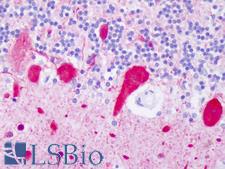Login
Registration enables users to use special features of this website, such as past
order histories, retained contact details for faster checkout, review submissions, and special promotions.
order histories, retained contact details for faster checkout, review submissions, and special promotions.
Forgot password?
Registration enables users to use special features of this website, such as past
order histories, retained contact details for faster checkout, review submissions, and special promotions.
order histories, retained contact details for faster checkout, review submissions, and special promotions.
Quick Order
Products
Antibodies
ELISA and Assay Kits
Research Areas
Infectious Disease
Resources
Purchasing
Reference Material
Contact Us
Location
Corporate Headquarters
Vector Laboratories, Inc.
6737 Mowry Ave
Newark, CA 94560
United States
Telephone Numbers
Customer Service: (800) 227-6666 / (650) 697-3600
Contact Us
Additional Contact Details
Login
Registration enables users to use special features of this website, such as past
order histories, retained contact details for faster checkout, review submissions, and special promotions.
order histories, retained contact details for faster checkout, review submissions, and special promotions.
Forgot password?
Registration enables users to use special features of this website, such as past
order histories, retained contact details for faster checkout, review submissions, and special promotions.
order histories, retained contact details for faster checkout, review submissions, and special promotions.
Quick Order
PathPlusTM TUBB3 / Tubulin Beta 3 Antibodies
TUBB3 (Class III Beta-tubulin) is a class III member of the beta tubulin family of proteins, which heterodimerize and assemble into microtubules. This protein is primarily found in neurons, where it may assist in axon guidance, maintenance and neurogenesis. TUBB3 is important for neural development, and it is a useful marker for early neural differentiation. Mutations in TUBB3 cause congenital fibrosis, and are associated with defects in neuronal migration and axon guidance in various neurodegenerative diseases including schizophrenia, polymicrogyria, lissencephaly and a multitude of brain malformations. In immunohistochemistry, antibodies to TUBB3 can be used to highlight neurons and to distinguish them from glial cells (TUBB3 negative) in the brain. TUBB3 has highest cytoplasmic positivity in the brain and in peripheral nerves, but is also found at lower levels throughout the body.
References: Nucleic Acids Res. 2012 Jan;40(Database issue):D130-5, PMID: 22121212; Molecular and Cellular Neurosciences. 2006. 32 (1–2): 67–81, PMID: 16626970; PLoS One. 2019 Jun 21;14(6):e0218811, PMID: 31226147
1 PathPlusTM Antibody

☰ Filters
Products
Antibodies
(1)
Type
Primary
(1)
Target
TUBB3 / Tubulin Beta 3
(1)
Reactivity
Human
(1)
Mouse
(1)
Rat
(1)
Bovine
(1)
Application
IHC
(1)
IHC-P
(1)
WB
(1)
ICC
(1)
Host
mouse
(1)
Product Group
PathPlus Neuro
(1)
Isotype
IgG2a
(1)
Clonality
monoclonal mc
(1)
Format
Unconjugated
(1)
Epitope
aa436-450
(1)
Publications
No
(1)

Neuroscience
TUBB3 / Tubulin Beta 3 Mouse anti-Human Monoclonal (aa436-450) Antibody
Mouse, Bovine, Rat, Human
ICC, IHC, IHC-P, WB
Unconjugated
50 µg/$485
Viewing 1-1
of 1
product results










